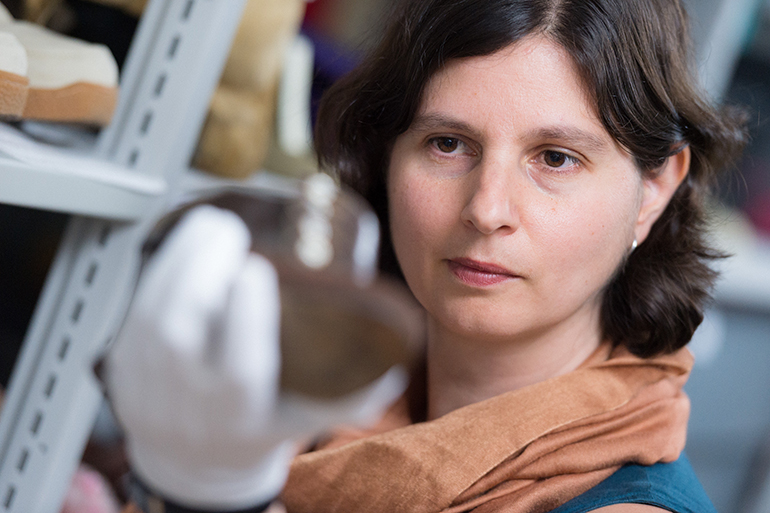
Associate Professor of History Brigitte Le Normand is the academic director of UBCO's public humanities hub.
Researchers bring reasoning into scientific, often polarizing, issues
In an era when divisions in society seem more prevalent than ever, two UBC humanities professors are using the power of arts, history and philosophy to build bridges and address the world's most pressing issues.
UBC is putting a spotlight on the human side of research through the creation of a public humanities hub on both the Vancouver and Okanagan campuses. Associate Professor Brigitte Le Normand, director of the Okanagan hub, says this initiative is designed to bring the university's brightest thinkers from the humanities together to explore emerging public policy questions.
"We're faced with a number of critical problems and we have a tendency to turn to scientists and engineers for the answer," says Le Normand. "Technology certainly has a lot to contribute, but humanists can step in by asking how can we even frame the problems in the first place and how does that shape the solutions we develop."
Le Normand, a history professor, says research from the Public Humanities Hub will be interdisciplinary, bridging connections in faculties across both campuses. While it supports UBC's research culture it will also publicize and organize humanities research and amplify the work of humanists on the Okanagan campus.
Adding critical thinking and reasonable voices to those solutions is part of the humanities mandate, says Greg Garrard, a professor of environmental humanities at UBCO. There is a need for different voices when it comes to research and problem solving, he says. Sometimes adding a humanist voice to the conversation can help change hearts and minds on issues that can polarize society.
"We might turn to technology to solve our issues but it may be that technological solutions are not the best for addressing the problem," says Garrard. "Perhaps the problem is bigger than that and you need to find an opening for other kinds of conversation. This is a great example of where humanists can step in and change the terms of the discussion."
While there are specific pillars of interest the hub will focus on-medical ethics, the environment, digital humanities and public history-both Garrard and Le Normand cite several examples of everyday situations where humanities can play a significant role in scientific conversations and resolutions including medically assisted death, justice by social media and climate change.
"One of the biggest challenges of our day is the climate emergency," she says. "It's polarizing and that very polarization prevents us from addressing problems. If you can step around that inherent conflict, you can change the very terms of the conversation. Suddenly the doors open for a productive conversation that didn't previously exist."






